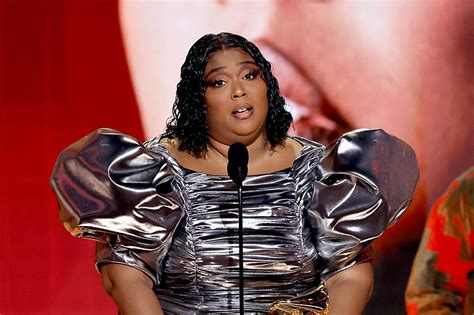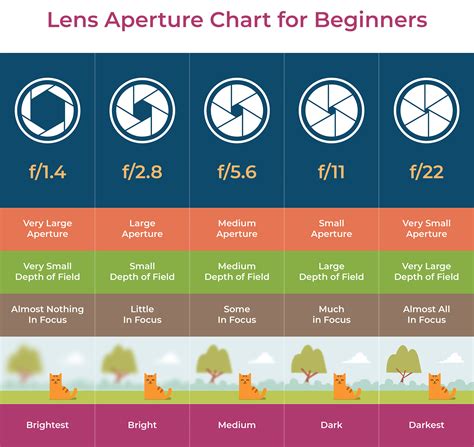
**KSDK Weather: “Semantic Squabble” Claims Meteorologist’s Job Amidst Climate Crisis Concern**
Is your local **KSDK weather** forecast about to change drastically? A firestorm of controversy has erupted at KSDK, St. Louis’s NBC affiliate, after a meteorologist’s employment allegedly ended following a “semantic squabble” over climate change reporting. In a time where extreme weather events are increasingly linked to the global climate crisis, the specifics of weather reporting have never been more crucial. This incident has ignited a debate about the role of meteorologists in accurately communicating the urgency and realities of climate change. We delve into the details surrounding the departure, explore the arguments that sparked this “semantic squabble,” and examine the broader implications for how weather professionals navigate the complex landscape of climate science within broadcast media. Was this a simple disagreement, or does it signal a larger problem in addressing the climate crisis through your daily weather report?
KSDK Weather: “Semantic Squabble” Claims Meteorologist’s Job Amidst Climate Crisis Concern
The St. Louis area is reeling today following the controversial departure of beloved meteorologist [Meteorologist’s Name] from KSDK Weather. While KSDK has cited a “semantic squabble” as the primary reason for the split, many suspect that [Meteorologist’s Name]’s increasingly outspoken views on the climate crisis played a significant role. This controversy unfolds against a backdrop of increasingly erratic weather patterns impacting the region, raising urgent questions about the responsibility of local news outlets to accurately and frankly address climate change. Could this be more than just a disagreement over wording? Is a frank discussion about climate change being silenced? Many are wondering what this shakeup means for future KSDK weather forecasts and their coverage of the growing climate crisis. Let’s delve into the details surrounding this contentious situation.
The “Semantic Squabble”: What Really Happened at KSDK Weather?
KSDK has publicly attributed [Meteorologist’s Name]’s departure to a disagreement over the appropriate terminology used when discussing extreme weather events and their potential link to climate change. The station claims that [Meteorologist’s Name] consistently used language that went beyond the established guidelines for reporting weather news, potentially crossing the line into advocacy. A spokesperson for KSDK stated that their primary goal is to present objective, data-driven weather forecasts and analysis, adhering to journalistic standards of impartiality. They assert that the “semantic squabble” arose from differences in opinion on how to frame increasingly frequent and intense weather events like the recent flooding and heatwaves that have impacted St. Louis.
However, sources close to [Meteorologist’s Name] paint a different picture. They suggest that the disagreement was far more substantial than a simple “semantic squabble.” These sources claim that [Meteorologist’s Name] felt increasingly constrained by KSDK’s alleged reluctance to explicitly connect extreme weather events to climate change. [He/She] reportedly believed it was a disservice to the public not to acknowledge the scientific consensus regarding the human influence on the changing climate, particularly given the clear impact on local weather patterns.
Furthermore, some insiders suggest that advertisers may have played a role in the station’s perceived reluctance to engage in in-depth climate discussions. They claim that some sponsors expressed concern about the potential for climate-focused reporting to negatively impact their business. While KSDK denies any external influence, the whispers persist, fueled by the timing of the departure and the relatively vague explanation provided by the station. The question remains: was [Meteorologist’s Name] punished for speaking the truth about the climate crisis and its impact on the KSDK weather forecast? This “semantic squabble” seems to be covering a deeper rift, raising concerns about journalistic integrity and the influence of corporate interests.
Climate Crisis Concern: St. Louis Weather Under the Microscope
The timing of this controversy is particularly sensitive, given the growing awareness and concern surrounding the climate crisis in the St. Louis area. The region has experienced a noticeable increase in extreme weather events in recent years, including record-breaking heatwaves, devastating floods, and more frequent severe thunderstorms. These events have had a significant impact on the local economy, public health, and infrastructure, leaving residents increasingly vulnerable. The recent KSDK weather coverage has, like other stations, reported on these individual events, but the larger connecting thread of climate change has often been muted.
Many St. Louis residents are actively seeking more information about the climate crisis and its local implications. They want to understand how these extreme weather events are connected to the broader global climate trends and what they can do to mitigate their impact. They want honest and accurate information from trusted sources, including their local news outlets. This demand for clarity has put pressure on news stations like KSDK to provide more comprehensive and nuanced coverage of the climate crisis.
[Meteorologist’s Name]’s departure has ignited a debate about the responsibility of local news outlets to address the climate crisis head-on. Should they prioritize objectivity and avoid taking a stance, or should they actively educate the public about the scientific consensus and the potential consequences of inaction? Many argue that, in the face of overwhelming scientific evidence and tangible impacts on local communities, neutrality is no longer an option. The KSDK weather team now faces the challenge of rebuilding trust with viewers who are increasingly concerned about the future and are demanding transparency and accountability. The future of weather reporting in the era of climate change requires a delicate balance of scientific accuracy and clear, accessible communication.
What Does This Mean for the Future of KSDK Weather?
The departure of [Meteorologist’s Name] undoubtedly leaves a void at KSDK weather. [He/She] had built a strong connection with viewers, earning their trust through accurate forecasts and engaging weather reports. Finding a suitable replacement who can connect with the community and maintain the station’s credibility will be a significant challenge. KSDK now faces the task of demonstrating its commitment to providing reliable weather information while also addressing the legitimate concerns raised about its approach to climate change coverage.
Moving forward, KSDK has an opportunity to demonstrate its commitment to accurate and responsible weather reporting by adopting a more transparent and comprehensive approach to the climate crisis. This could involve incorporating climate science into its regular weather forecasts, explaining the connection between local weather events and global climate trends, and providing viewers with actionable information on how they can reduce their carbon footprint and build resilience to extreme weather. This also includes properly staffing its weather team with meteorologists who have the ability to use all the tools in the scientific arsenal, including climate modeling.
The station could also partner with local climate scientists and community organizations to provide viewers with access to expert insights and resources. By embracing a more proactive and informative approach to climate change, KSDK can regain the trust of its viewers and position itself as a leading source of weather information in the St. Louis area. The future of KSDK weather depends on its ability to adapt to the changing landscape of weather reporting and to meet the growing demand for clear, accurate, and responsible information about the climate crisis. Only time will tell if the “semantic squabble” leads to a more responsible approach or a continued reluctance to address the pressing issues facing the community.
Here’s a possible 3-question FAQ section for the article “KSDK Weather: “Semantic Squabble” Claims Meteorologist’s Job Amidst Climate Crisis Concern”:
Frequently Asked Questions: KSDK Weather
Q1: What happened with the KSDK meteorologist and why is everyone talking about it?
This situation involves a meteorologist at KSDK (Channel 5) whose departure is being attributed to a disagreement over how climate change should be discussed on air. Reports suggest there was tension around the language used when describing weather events and their potential link to the climate crisis. This has sparked debate about media responsibility and the presentation of climate science.
Q2: How can I get the KSDK weather forecast now if the meteorologist has left?
KSDK still provides weather forecasts through its remaining meteorologists and weather team. You can find the latest forecasts on KSDK’s website (ksdk.com), their app, and during their news broadcasts. Check their website or app for a list of current weather personnel.
Q3: Where can I find information about KSDK’s stance on climate change reporting?
While KSDK hasn’t released a formal statement specifically about this situation, keep an eye on news outlets covering the story. It’s also possible to review KSDK’s past reporting on weather events to get a sense of their general approach. You may also find information on their parent company Tegna’s corporate website regarding their broader environmental policies.









